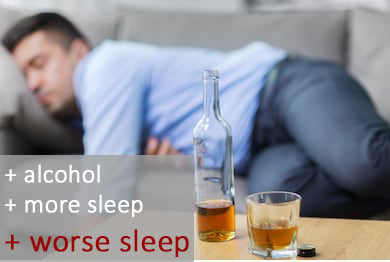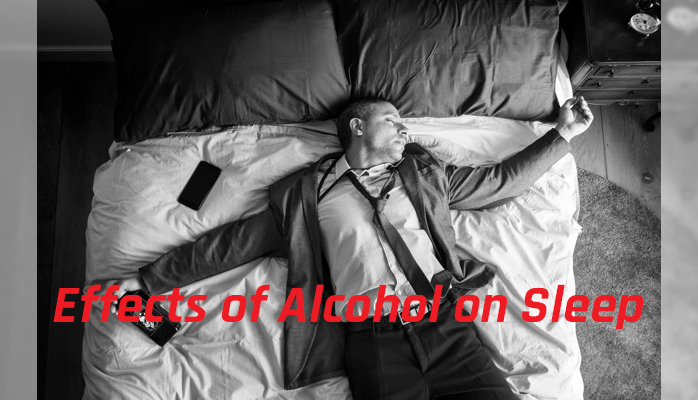Sleep Trouble – Could it Be Your Nightcap?
Do you frequently wake up feeling particularly tired? Does it take your brain quite a while to dispel the fogginess of sleep? Feel like you are easily forgetting things? It might be that nightcap before bed.
The fact is: alcohol disrupts important sleep activities, like getting a full night's rest, uninterrupted sleep, and restorative sleep. This is because alcohol blocks REM sleep, and can interrupt your circadian rhythm by breaking your sleep throughout the night. Continue reading to learn about the effects of alcohol on sleep.
Alcohol Blocks REM Sleep
REM (Rapid Eye Movement) sleep is the deepest phase of your sleep. It is the mentally restorative phase of sleep, keeping your brain primed for [National Institute of Health]:
- Memory retention
- Learning
Alcohol suppresses REM sleep, especially in the second half of the night. This means less restoration/stimulation on the parts of your brain needed for learning and memory retention. What this usually ends up looking like is general, decreased performance during the day at work or in school.
Alcohol Can Interrupt Your Circadian Rhythm

If you are prone to snoring or sleep apnea, alcohol before bed can exacerbate both. Alcohol causes the whole body to relax, including the muscles in the throat.
Relaxed muscles in the throat are a primary cause for snoring and/or sleep apnea [London Sleep Centre]. Both snoring and sleep apnea can disrupt your circadian rhythm by constantly causing your body to waken in order to restore a normal breathing pattern.
Of course, constantly waking up throughout the night will throw off your rhythm, leaving you tired during the day and prone to make sleep decisions that you might not otherwise make.
Causes You to Urinate More (and Wake Up More)
Alcohol is a diuretic [Journal of Physiology] – it makes you go pee more. Generally, our bodies produce less urine at night than during the day to allow us to get a full night's rest without interruption.
As a diuretic, alcohol can cause you to get up one or more times during the night to relieve yourself, thus disrupting your sleep cycle even further (i.e., beyond suppressing REM sleep or worsening sleep apnea).
Sleep Trouble Caused by Alcohol or Sleep Disorder
If you find yourself chronically tired and/or express many other symptoms of chronic sleep deprivation, pay attention to how much alcohol you drink before bed. You might try cutting alcohol in the hour leading up to bed and see if your symptoms alleviate.
If you cut alcohol and still find yourself showing signs of sleep deprivation, consult with your healthcare practitioner or sleep specialist – it may be a sleeping disorder. Also, we definitely recommend that until you figure out why you are having chronic sleep deprivation symptoms you continue to cut alcohol before bed, as it only has the potential to worsen symptoms.
For more help with your sleep, please click the blue button below to schedule a sleep medicine consultation.


